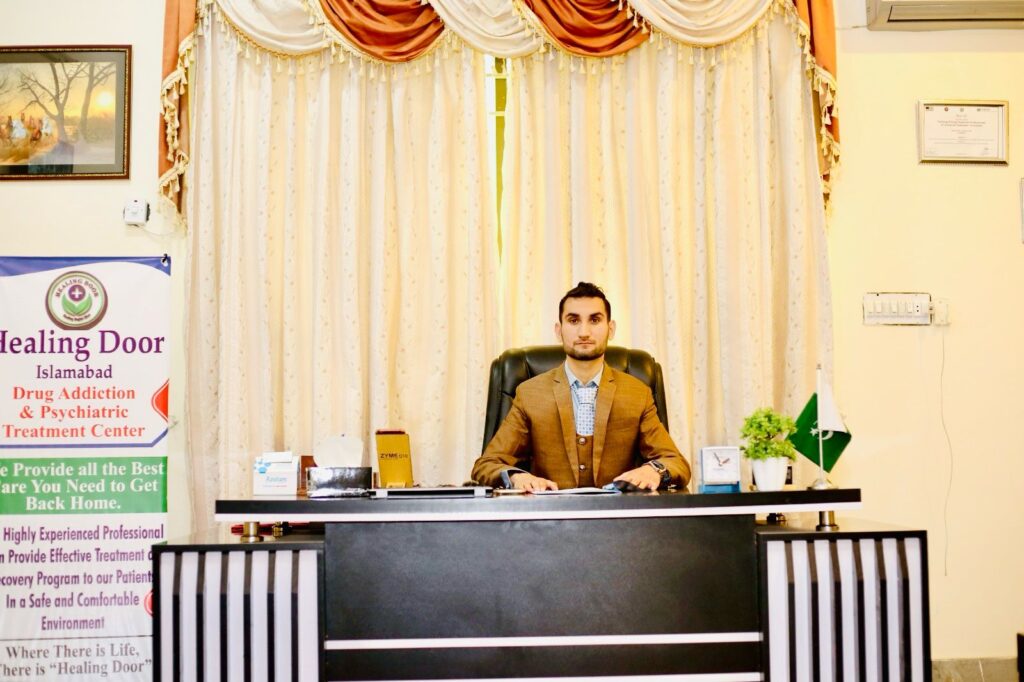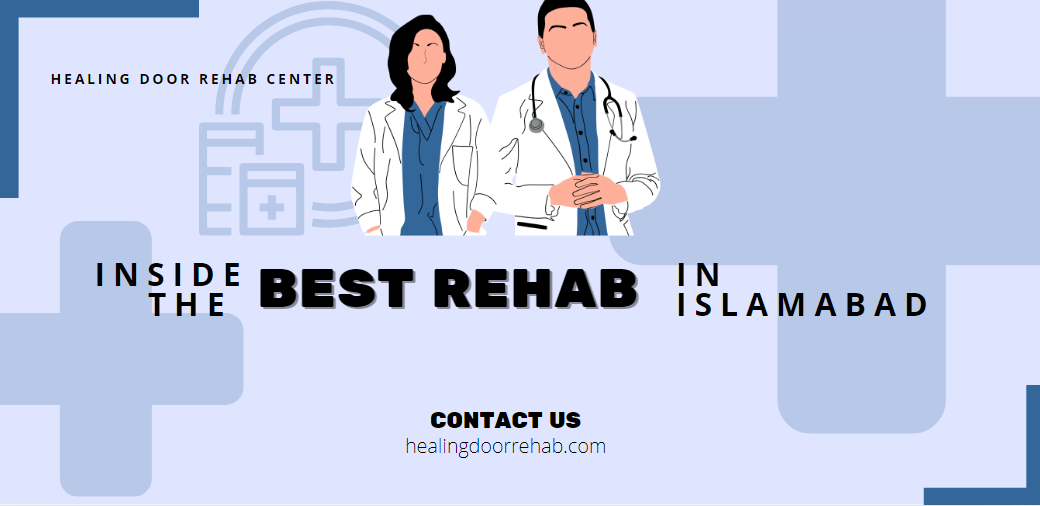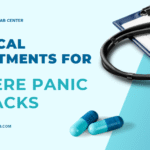Modern Approaches to Mental Wellness – Leading Rehab Center Programs
Contemporary Mental Health Rehab Centers do not simply offer mental health therapy but it is an all-inclusive center that is meant to solve the problems of mental health. Such centers integrate individualized treatment, holism, and evidence-based interventions, which give the patient unique care. These centers enable patients to gain control over their lives and ensure mental health throughout their lives by aiming at long-term solutions as opposed to managing the symptoms.
Personalized Therapy Programs
A comprehensive examination is provided to each patient of a Mental Health Rehab Center, which enables the therapists to develop a tailor-made treatment plan. This can involve cognitive-behavioral therapy (CBT) to support negative thinking patterns, dialectical behavior therapy (DBT) to help in managing emotions, mindfulness and meditation to help in reducing anxiety and group therapy sessions which offer peer support and personal experiences. Custom-made programs make sure that the treatment is responsive to the mental health issues of each individual making the recovery more effective and long-lasting.
Inpatient And Outpatient Programs
In contemporary facilities, there are inpatient and outpatient services that are provided to meet different levels of demand. Inpatient care is in a very organized setting, and 24/7, which is best suited to patients with severe symptoms or crisis. Patients enjoy the constant attention and constant therapy and prompt access to professional assistance. By using outpatient care, a person can continue living his or her daily routine (e.g. work, school) and have the therapy sessions and be supported by the professional. This two-way strategy can help to guarantee the required level of care to patients, and recovery is available and adaptable.
Holistic Mental Approaches
The approach to holism accepts the mind, body and the spirit because mental health is connected with the overall wellbeing. Rehab centers also include yoga and meditation practices that promote emotional control, art and music therapy which enables employees to express themselves emotionally, nutrition counseling which promotes activities in the brain and physical exercise programs which reduce anxiety and depression. They also include such stress management methods as journaling or mindfulness.
Evidence-Based Practices
Evidence based practices has been used in supporting the Major Mental Health Rehab Centers to deliver the care effectively. These are interventions that are scientifically justified, session, which is a trauma informed and technological session like a virtual session or mental health app. Progress tracking systems are also used in the centers to analyze the treatment plans on a regular basis and to make changes. By incorporating the evidence-based practice and using the latest technologies, such centers can make the most out of the treatment and assist the patients in attaining the measurable and sustainable mental health outcomes.
Supportive Healing Environment
Recovery requires the presence of a nurturing environment. An environment such as Healing Door Rehab Center focuses on the provision of a safe and home-like environment, which is makeable through the help of compassionate staff and peer support programs. Patients should be allowed to participate freely in the therapy process without feeling judged. Such a conducive setting helps in promoting trust, confidence and empowering patients to take an active role or part in their recovery process which ultimately leads to better outcomes.
Family Involvement Programs
A very important part of long-term recovery is family participation. Contemporary rehabs involve family therapy, educational classes, and post-discharge counseling. Such programs educate family members on the provision of support, enhance interaction, and reintegration of the patient into normal life. Engagement of families improves family relationships, accountability, and continuation of recovery beyond the formal treatment.
Group Therapy Sessions
Group therapy creates peer support and learning within group and provides the patients with a sense of belonging since they may be alone due to their mental health needs. The patients will be in a position to share the experience, learn the coping skills of other patients and socially develop in a safe setting. This group environment makes patients gain confidence and gain better emotional control and motivation to proceed with the healing process.

Stress Management Techniques
Mental health is dependent on stress management. In their rehab centers patients are taught to use methods like guided meditation and deep breathing exercises, journaling and mindful movement practices like Tai Chi and yoga. These devices assist the patients to cope with stress, depression, anxiety, and daily stressors and thereby enable them to react to challenges in healthy and positive manners.
Mindfulness And Meditation
The notions of mindfulness and meditation are already integrated into the contemporary programs as they have to ensure that the patients are capable of reducing their negative ways of thinking, are more mindful about what is happening in our moment, and are able to control their feelings better. The patients can be assisted to become self-aware and acquire coping mechanisms with the aid of the direction of the therapist, breathing and contemplation. Mindfulness supplementary to other forms of therapies can improve healing and introduce a sustainable psychological wellbeing.
Nutrition And Lifestyle Support
Mental wellness entails healthy living. Rehab centers offer advice with regard to nutrition, exercise, and sleeping patterns. Eating well, exercising, and sleeping well enhance the brain and emotional stability, anxiety, and depressive symptoms, mood and cognitive functioning respectively. Incorporation of these lifestyle modifications into the treatment remedies recovery and benefits long-term mental health.
Aftercare And Follow-Up
The termination of recovery does not coincide with the termination of a program. The most typical after care services which are offered in the top centers is the follow up therapy, support groups and frequent check-ins to ensure that the patients do not revert. Formal aftercare reduces the risk of relapse, enhances the coping skills and remains supportive to the patient to ensure that he or she is able to come out successfully in the process of the resumption of normal life devoid of mental health issues.
Contact Information
To learn more or schedule a consultation at Healing Door Rehab Center:
- Phone: 923149922547
- Email: info@healingdoorrehab.com
- Address: Opposite Mezan Bank, Main Jinnah Road, bani Gala, Islamabad
The staff is available to guide patients and families through the recovery process with personalized care and professional support.
Frequently Asked Questions (FAQ)
Q1: What are the types of conditions that Mental Health Rehab Centers address?
A1: They prescribe depression, anxiety, bipolar disorder, PTSD and other mental health conditions.
Q2: What is the duration of treatment?
A2: Programs can be done over a period of just a few weeks to a number of months depending on the needs of the individual.
Q3: Are families involved?
A3: Yes, the programs include family therapy and workshops as an aid to recovery.
Q4: What are the holistic therapies?
A4: Yoga, meditation, nutrition counseling, stress management and art or music therapy.
Q5: What is the way I book a consultation?
A5: Visit, call or email the website to make an appointment with the professional staff.
Conclusion: Future Of Mental Wellness
An integrated approach of an individualized treatment, holistic services, evidence-based treatments, supportive milieu, and family involvement is the combination of these methods that are applied in Modern Mental Health Rehab Centers to ensure a sustainable recovery. One such best practice is Healing Door Rehab Center, which allows patients to be more in charge, resilient, and have mental health in the long run. The correct choice in the center choice nowadays is an important step, which will help to live the full life with balance, completeness, and empowerment.




